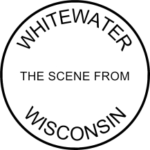 Writing about a topic is a deliberate, often slow, process. Something happens – perhaps of concern – but one may not address it immediately. A bit of waiting can be a sound response. Along the way, an original perspective may change, and a project grow larger (or smaller). See Steps for Blogging on a Policy or Proposal.
Writing about a topic is a deliberate, often slow, process. Something happens – perhaps of concern – but one may not address it immediately. A bit of waiting can be a sound response. Along the way, an original perspective may change, and a project grow larger (or smaller). See Steps for Blogging on a Policy or Proposal.
In November, I began thinking about the absence of some school board meetings on the City of Whitewater’s Vimeo page (https://vimeo.com/cityofwhitewater), a page that hosts both municipal public meetings, community events, and sporadically Whitewater Unified School District meeting videos. (Indeed, the WUSD website directs visitors via a link on http://www.wwusd.org/page/2459 to the city’s Vimeo page.)
Now readers may have heard, as I have, that in nearby Milton there are school board members who think other kinds of videos should take precedence over board-meeting videos. It’s a false choice: there’s room for all kinds of recordings.
![]()
In any event: open government recourse under Wisconsin law is an individual right; it does not matter if two, or twenty, or twenty-thousand think otherwise. One need not take a poll, hire POLCO, or even accept the opinion of office-holding polecats from Milton.
If a response depended only on recordings of school board meetings, one could request them through the Wisconsin’s Public Records Law Wis. Stats. §§ 19.31 – 19.39. If the district proved unwilling to make available regularly the video records of its school board, one could under Wisconsin’s Open Meetings Law Wis. Stats. §§ 19.81 – 19.98 see that those videos were privately recorded and then made available at FREE WHITEWATER.
Hannibal’s determination to cross the Alps during the Second Punic War is the subject of a famous, attributed remark. A more inclusive paraphrase in the plural, applying equally to any person’s recourse, is even better: ‘we will find a way or we shall make one’ (inveniemus viam aut faciemus).
While discussing this with others inside and outside Whitewater, someone kindly gave me a suggestion: why not compare the contents of existing videos with local accounts of the meetings? Perhaps one could develop a series of criteria to compare what happens at a meeting as recorded with how a others report it, item by item, meeting by meeting.
That’s a larger project, and larger still if, as someone else also suggested, one included both a good sample of school board and common council meetings.
My aim was low; others’ better suggestions raised that aim higher.
A project to obtain records (or record them if a public body retreats from its longstanding practice) is not the same as comparing video records with existing efforts. Not the same, but related. One can do both.
That will take a bit more time, and the working out of the right order of it all, but that doesn’t matter. I’m happily in Whitewater forever.
